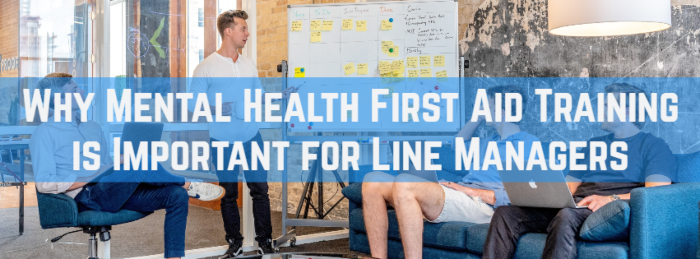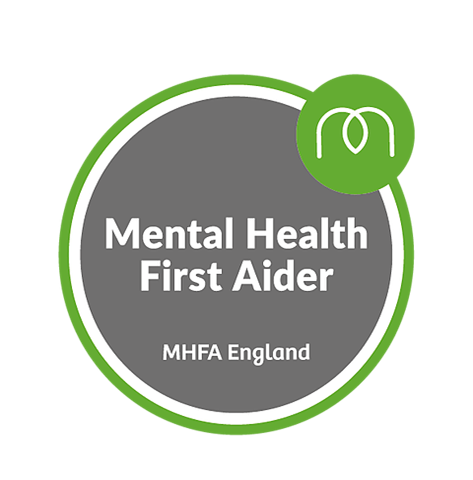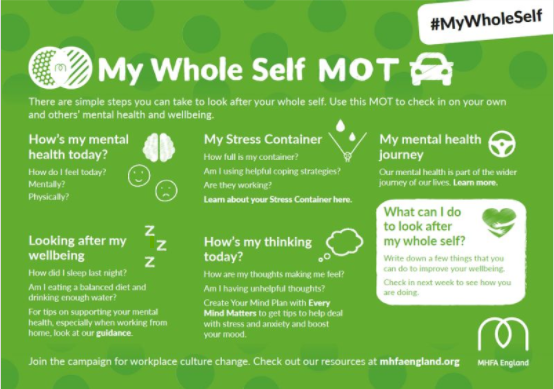Mental Health First Aid Training for Line Managers
|
|
|
|
Author: Kate Davies, Recruitment & Advertising Manager for the Prospects Online team Date: 13th May 2021 Here we are in May 2021; life as we knew it, is very slowly getting back to normal after a year of lockdowns, isolating and shielding for many people. Every single one of us will have coped differently and our personal situations and experiences have been varied. On reflection my personal experience of the restrictions hasn’t been that bad in all honesty; certainly not as bad as it has been for some. It’s been a case of getting through it, week to week, with a teenager and a puppy. We have eaten a lot, walked a lot, shopped online a heck of a lot and watched a lot of Netflix.
Thinking about those who have mental health issues, hidden illnesses or disabilities and the effects of the pandemic on them in particular, I jumped at the chance. So in April; over the course of 4 days; I completed my MHFA training with 7 colleagues and delivered by our in-house MHFA Instructor, Simon Brannan. As a result of successfully completing the training I am now able to “provide first aid to people experiencing mental health issues such as depression, anxiety and psychosis”. The training initially felt a bit like the traditional first aid at work training I have done in the past (in that you hope you never have to actually put your new skills to use!) but fairly quickly it became clear that the MHFA training really is different. Simon guided us through the different mental health issues, risk factors, warning signs and stresses. A common misconception is that by attending the training you would be expected to diagnose and treat mental health conditions but this is not the case; the training is about helping people by listening to them, supporting them and encouraging them to get professional help. The key to the training is to adopt the ALGEE action plan. In many instances the role of the Mental Health First Aider is to listen, support and signpost to those further support systems and services. In more serious cases you are trained in how to assess the crisis and how to communicate effectively and explain what professional help is available. "During the pandemic, 1 in 4 employees say they’ve had no wellbeing check-ins from their workplace and almost a third of workers never discuss mental health in meetings with their line manager." (MHFA England). As a line manager I generally speak to my team on a daily basis. Naturally it’s different when you aren’t sat in the office together every day; we now share our bad hair days with video calls and message about non-work related things at home to replicate the general chat we miss from the office environment. We have always supported each other, in work and non-work scenarios. However, I reflected after the training that I had never considered specifically asking about my colleague’s mental health and I wondered if this might be subconsciously because I was unsure what I would do and say if there was a problem. How would I deal with that? After the MHFA training I feel confident as a manager to ask those questions and have those conversations with my team and with other people. I know what to look out for, the things to talk about, how to listen better and what support is out there for people. There is great importance and benefits of putting employee wellbeing at the centre of the organisation approach, enabling staff to thrive and feel supported, leads to happier and more productive staff and workplaces.
You can use this tool to check in on your own and others mental health and wellbeing. I learnt a great deal about my own ‘stress container’ what fills it up and what I can do to open that tap. If you would like more information on the training PACT HR offers, including how to become a Mental Health First Aider, please contact Simon Brannan at simon.brannan@bradford.gov.uk |

 In February I was asked if I would like to take part in the Mental Health First Aid (MHFA) training; joining a group of over 45,000 others trained since March 2020.
In February I was asked if I would like to take part in the Mental Health First Aid (MHFA) training; joining a group of over 45,000 others trained since March 2020. Embedded in this training, is the reminder of how important self-care is, looking after our own wellbeing (
Embedded in this training, is the reminder of how important self-care is, looking after our own wellbeing (